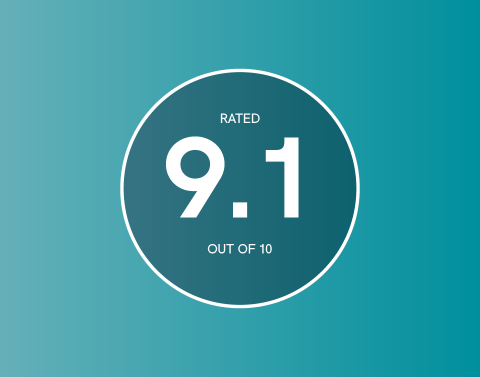If you’ve spent lunchtime doing a Myers-Briggs personality test (come on, we’ve all done it) you’ll be familiar with individuals being labelled as either extroverts or introverts. We all know that extroverts are renowned for thriving in social situations and reacting immediately to scenarios as opposed to introverts who are more comfortable with contemplation and independence.
With regards to leadership and negotiation, there’s always been a belief that you have to be a certain type of person – perhaps a ‘take charge, get what you want’ kind. After all, the majority of today’s leaders deliver TED-style inspirational talks, they’re confident, engaging, speak out in meetings and constantly network with clients. Don’t they? Yes, charismatic personalities have always been seen as the ideal leaders, capitalising on infectious enthusiasm to get their business behind them. However, it’s not actually always the outgoing, outspoken extroverts who rise to the top in business. In a world that may overvalue extroverts, group thinking and sociability, is it time to redress the balance? Or is the leadership landscape already changing?
Lawyer turned best-selling author Susan Cain said in her 2012 book ‘Quiet’ that “introverts are people who gain energy from being alone”. Embracing solitude means introverts have greater opportunities for self-reflection, reasoning, envisioning, researching, speculating and monitoring; the ideal recipe for focus. There’s a firm belief in business that leads the typical introvert to believe that there’s no room for their more reflective, deliberate style. They’re told they need to speak up more and be more assertive when it comes to self-promotion. They question why they freeze at meetings, loathe small talk and would rather be stranded on a desert island with their Mother-in-Law than give a corporate speech. Introverted leaders share certain traits; yes, they’re reserved with their emotions, prefer deep conversations as opposed to small talk and value privacy but they enjoy talking at length about subjects they’re passionate about, which makes for an innovative and thoughtful leader. Professionals are not flawed by being introverted; it’s not a defect or a trait to overcome. It’s actually an advantage in business - introverts are often better listeners who have a greater ability to empathise with individuals.
Did you know that high-profile leaders like Bill Gates and Mark Zuckerberg are introverts? Their area of interest, technology, makes it easier for introverted leaders to communicate effectively; channels such as Facebook, Twitter and email have made interacting directly with employees or stakeholders easier without the face-to-face element that many introverts find uncomfortable. Essentially, technology provides communication for introverts in a considered way. However, for senior executives running a company or managing a team, it’s key to note that technology certainly can’t replace face-to-face interactions. It’s imperative to network, speak and engage with others in order to be seen as proactive and inspiring. So how do introverts face these challenges in business? Why not find an excuse to actually put yourself in situations that stretch your personality but aren’t uncomfortable or overwhelming. If you’re due to give a corporate speech, enrol yourself on a public speaking course, utilise your L&D department and better still, have the content right in front of you either on slides or as notes; use these as easy reference if you lose track.
If you’re due to attend a networking event, follow these top tips to make the most out of the situation:
Get there early – it’s more intimidating to walk in later when groups have already formed and conversations are flowing. Perhaps connect in advance with particular delegates via LinkedIn.
Embrace small talk – yes, this isn’t natural to introverts. But stop looking for something clever to say. Ditch the pitch, crack a smile and enjoy some light-hearted conversations.
Listen – this is one of your best skills as an introvert so use it to your networking advantage. Ask lots of open ended questions to drive conversation.
Relax – remember that networking events are an opportunity for professionals to socialise. Try to adopt the mind-set that these networking opportunities are potentially the beginning of some great relationships. It’s not a sales pitch for people to buy into you. Yes, you can hand out business cards whilst you’re there but you can connect with people afterwards, too. Just relax and enjoy the event.
Thorough preparation, consideration and indeed, thoughtfulness, are principles every leader should adopt. For introverts, these vital principles come inherently. Introverted leaders tend to think before they speak or take action, whether that be communicating with their team, the wider business or delivering presentations. Let’s be honest - we shouldn’t ever ‘divide’ the business world into introverts and extroverts; we should simply highlight and celebrate the importance of introverted people as pivotal leaders in business.
For honest career advice, contact us today on +44 (0) 207-649-9464 or email london@ojassociates.com



